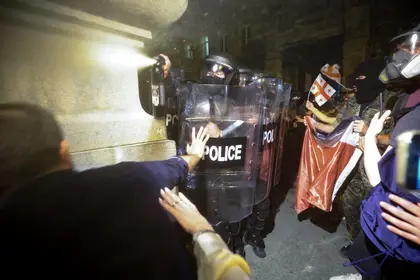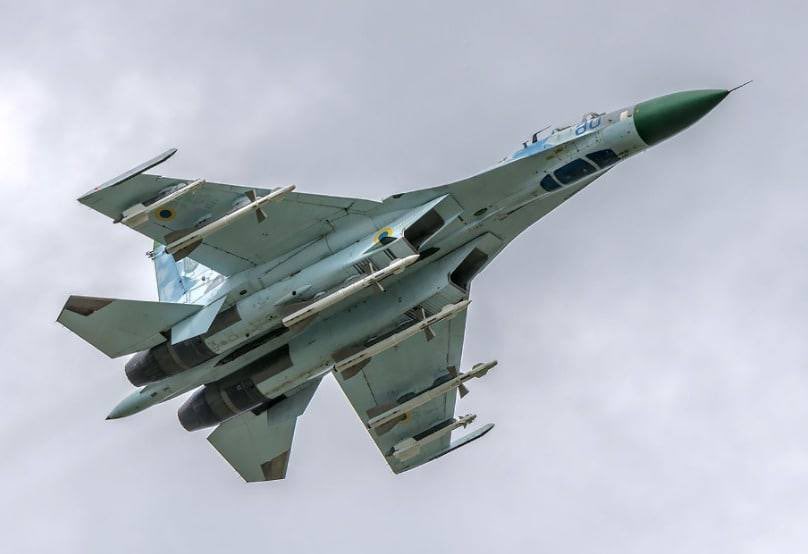Remarkable times in the South Caucasus, with evidence of shifting strategic allegiances.
Armenia, which had been long deemed to be in Russia’s strategic orbit - itself a reflection of Yerevan’s desire to shelter under Russia’s strategic umbrella as a defence against Azeri threats to Armenia’s prior control over Nagorni Karabakh, seems set to break from Moscow.
JOIN US ON TELEGRAM!
Follow our coverage of the war on the @Kyivpost_official.
Partly this reflects disappointment in Yerevan that when push came to shove, in the recent wars (2020 and 2023) in Nagorni Karabakh, Russia failed to deliver on its promises to help hold the line against Azeri advances - some sense there in Yerevan that Russia sold Armenia down the river, cutting deals with Azerbaijan and its key ally, Turkey, against Armenia.
To some extent Armenia was subject to score settling by Moscow - Armenian PM Pashinyan, came to power in 2018 ousting kleptocratic elites close to Moscow, and has tried to roll out a liberal reform agenda which threatened Russian interests and kleptocratic view of the world. Stepping back and allowing Azerbaijan victory in NK, was Moscow’s way of chastising Pashinyan, albeit in the 2023 war Russia’s military ability to intervene in support of Armenia was significantly constrained by its difficulties in Ukraine. Moscow might just have been accepting the inevitable, and recognising Armenia’s limited strategic value relative to Ukraine, and perhaps now Georgia (see below).

Tbilisi Arrests 2 US Citizens During ‘Foreign Agents Bill’ Protest
Azerbaijan’s recent victories have resulted in soul searching in Yerevan and realisation that new alliances and a new strategic direction is required. Armenia is hence pushing to agree a long term peace deal with Azerbaijan, in effect accepting defeat in NK, and trying to negotiate the best terms for its remaining population in the region, and trying to avoid further conflict with Azerbaijan which it would likely lose.
Given Azerbaijan’ energy rich economy, more favourable demographics and its military/technological advantages, the Pashinyan government appears to have concluded that further wars with Azerbaijan risks further set-backs, especially given the lack of a Russian backstop. So Armenia is looking for a defining, lasting peace with Azerbaijan, normalisation with Turkey (potentially a key trading partner, source of investment, and counterweight to Russia) and a new push for EU and potentially even NATO membership.
For Pashinyan, it seems to be a case of realpolitik, and thus far, he has been able to manage Armenian domestic politics to sustain the new shift in geopolitical orientation. Despite the setback in NK, Pashinyan remains popular, as is his shift West, and he continues to win elections.
Remarkable potential shifts are also underway in neighbouring Georgia. Georgia, under former President, Mikheil Saakashvili, had set a strident course West, pushing for both early EU and NATO membership. This push greatly irritated Moscow, resulting in the Russian invasion of Georgia in 2008 and subsequent efforts to annex two Georgian regions, Abkhazia and South Ossetia. Saakashvili was eventually ousted from power in 2013, losing the presidency, after his United Opposition Party (UNM) lost the 2012 parliamentary elections after a lightning campaign by a new party (Georgia Dream) led by Bidzini Ivanishvili, an oligarch returning to Georgia after making his money in Russia.
Suspicions have since lingered that Ivanishvili is somehow a product of Russian “political technology” augmented by the fact that GD’s victory in 2012 were in no small part the result of a sex prison scandal with Russian style Kompromat emerging to damage UMN during the campaign. Ivanishvili served first as prime minister but then ran GD from the shadows as party chairman. Under Ivanishvili and GD, policy became more balanced between Russia and the West - as evidenced by Georgia’s official stance on the war on Ukraine being one of neutrality. GD subsequently won numerous elections albeit their fairness was strongly disputed by the opposition and criticised by the West. Power has increasingly been centralised around the ruling party in Georgia, and checks and balances removed.
A Transparency Law which brands NGOs with foreign financing as foreign agents appears to have been something of a lightning rod for the opposition. Large scale demonstrations have rocked the capital Tbilisi, and the government has responded with hard handed policing tactics. It seemed as though demonstrations might peter out - with a potential outlet being elections towards the end of this year. However, a new intervention by Ivanishvili, speaking at a pro government demonstration this week appears to have thrown new fuel on the fire.
Ivanishvili incensed the opposition by criticising the West for many of Georgia’s problems, including the Russian invasion in 2008, the war in Ukraine, and signalled a new reorientation towards Moscow. In response demonstrations have increased in size and intensity, and the security forces have responded by upping the ante in terms of the repression used. Opposition leaders have been beaten and arrested. Georgians are passionate, and society is polarised now into the different camps, with neither side appearing willing to step down, which suggests an escalation in tensions.
Events in Georgia this week have shades of Ukraine circa 2013, as a centralising regime seems to be spurning cooperation with the West, shifting back towards Moscow. For a large section of the population, who view the West and Europe as key to reform and development in Georgia, this all looks like a turning point and a reason to demonstrate or else lose hopes of democracy, the rule of law, and Western values, which come with the EU and NATO accession pushes. As with Ukraine in 2013, how the regime reacted will be key - the Yanukovych regime in Ukraine in 2013 over-reacted with the use of violence, just multiplying the scale of street protests to the point that the regime was overwhelmed.
Much of the evidence from 2013 in Ukraine, and earlier with the Orange Revolution in Ukraine in 2004-05, suggests that Moscow pushed the incumbent regimes (Kuchma/Yanukovych) to adopt an iron fist response to protests. Kuchma seems to have resisted Russian pressure in 2004/05 and the incumbents politically lived to fight another day, whereas in 2013 Yanukovych appears to have agreed to violently suppress demonstrations, and the Euromaydan was the result, with Yanukovych forced to flee to Russia. Ivanishvili’s decisions this time around could well be decisive as to whether Georgia sees another coloured revolution, or Euromaydan style event.
Russia’s position in Georgia is particularly interesting. There is much to suggest Russian involvement here - perhaps the quid pro quo is Russia surrendering strategic control over Armenia perhaps for the bigger prize of control over Georgia. For Moscow Georgia is both a key transshipment route for energy and commodities from Central Asia to the West, circumventing Russia - much more so than Armenia.
Control over Georgia, hence, potentially stymies Western efforts to diversify commodity supply and supply routes away from Moscow. Russia has, more recently, moved to develop a new Black Sea Fleet base at Ochamchira in Abkhazia. Ochamchira offers a secure, deep-water harbour for Russian Black Sea Fleet vessels no longer safe in Crimea. True, de facto, Russia already controls Abkhazia after its invasion of Georgia in 2008, but full normalisation of relations with Georgia now would potentially secure the use of Omchamchira for the longer term, reducing the strategic importance of Crimea - perhaps then improving Russia’s negotiating position in future peace talks with Ukraine.
Finally, for Russia, the full takeover, in effect, of Georgia with Ivanishvili’s casting off Western influence in favour of a shift back to Moscow would close the final chapter in his long-term battle with former Georgian President Saakashvili. The recapture of Georgia would be complete.
Putin would undoubtedly see that in a win in his longer-term battle with the West for influence/dominance of the post-Soviet space. It would also play to Putin’s narrative that the collapse of the USSR was a huge 20th-century mistake, and remaking that entity, with Georgia a first new piece in the jigsaw, would be an undoubted win.
Reprinted from the author’s @tashecon blog! See the original here.
The views expressed in this opinion article are the author’s and not necessarily those of Kyiv Post.
You can also highlight the text and press Ctrl + Enter







Comments (2)
The scenario Mr. Ash paints of turmoil in the Caucuses makes a great deal more sense than the media's constant hand wringing over a potential Russian attack on the Baltic Republics which have full NATO protection. Putin isn't so stupid as to attack NATO head on.
This Russian ebb and flow In Georgia depends on its economic, geopolitical. And military power and influence worldwide ...
The West western world, Nato plus their allies worldwide in all continents would look for their economic and geopolitical interests dealing with Russian federation ...
Even China would deal with others (including Russia and the west ) accordingly to who wins in Ukraine ...
Rules of the games and expansion usually favors and is more written by the strongest and the fittest in most areas ... The universe has natural selection ...